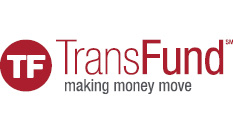When it comes to your EFT (electronic funds transfer) provider, there are numerous ways you should be working with them to maximize return with your debit and credit card programs. Not only does selecting the right EFT have a significant impact, but other factors can influence the program effectiveness, such as selecting the right PIN network and the way cardholders choose to run their transactions at the point of sale.
What is an EFT provider?
The term EFT is often thrown around, but many may not truly understand it’s meaning. While it’s defined as Electronic Funds Transfer, it’s referring to the money that’s moving electronically, behind the scenes, between people, financial institutions and companies. Across the world, EFT is today’s preferred method because it is faster than checks and safer than cash and its popularity continues to grow. According to Forbes, only 14% of people say they prefer cash payments with more than 70% of people citing cards as their go to payment method. As a credit union, pushing your members to use electronic transactions gives them the choices they are looking for plus an opportunity for you to make some non-interest income without costing them more.
Maximizing Interchange Through Member Education
An EFT provider will give you detailed reporting of your member’s card activities and demonstrate the impact changing the types of transactions at the point of purchase could have.
When a member conducts a transaction at the point of sale at a retail establishment, the machine will likely default to a PIN transaction and prompt them to enter their four-digit PIN. This is done because of the reduced processing cost businesses pay for this type of transaction versus one requiring a signature. You should be receiving regular reporting that will help you determine if member education would be beneficial to your credit or debit card program.
Educating members to bypass the PIN will create a simpler transaction for your member will also increasing the interchange income. The transaction type doesn’t impact their purchase amount or cost them anything additional and can usually be bypassed easily on the machine where they insert their card.
Networks and Choosing an EFT Provider
Working with your EFT provider to navigate your PIN network is another way you can positively influence your card program. Your EFT partner can help you navigate and understand the available options you have.
The first thing to look for is what PIN network being used. This can be complex as there are several PIN networks to choose from, but the one you choose can affect your interchange income by more than $0.12/transaction. According to the Federal Reserve Fed Study that is released each year, rates vary greatly by network and even by card brand.
You may have heard of Pulse, NYCE or Star and these are examples of networks used by EFT providers and major card brands. Some EFT providers have relationships with these networks and will have a default selected on your behalf. Instead of having your network decided for you, ask your provider to compare the differences in interchange income and choose the one that meets your needs.
You might also consider evaluating the difference between the card brands. While we all know Visa and Mastercard, there may be some nuances with the brand that could impact your card program. Your EFT provider may have options that allow you to compare the brands and determine which one works best.
When it comes to choosing an EFT provider, you will want a partner that fits your unique needs. Every credit union has a different type of membership and therefore, your needs will vary. And whether you’re processing your credit and debit transactions with your core provider or have an integrated solution provided by a third-party, ask for a portfolio evaluation to determine if your current set up is giving you the best return for your investment.
If you are looking for a true partner who can help you choose the program that  works best for you, reach out to Damon Gardner with TransFund at dgardner@transfund.com.
works best for you, reach out to Damon Gardner with TransFund at dgardner@transfund.com.
Consider replacing provider or vendor with the word partner. [PS1]
Capitalize. PIN is an acronym Personal Identification Number. Always capitalize as you’ve done further down in the article. [PS2]


